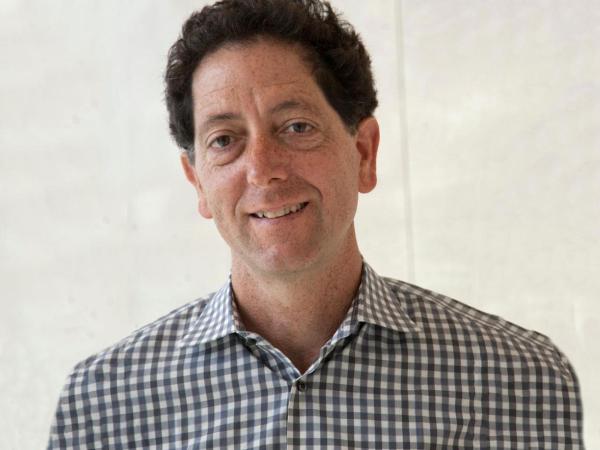NIH Director's Lecture with Kevan Shokat, Ph.D. "Overcoming The Undruggable Nature Of The Most Common Human Oncogene K-Ras"

Kevan Shokat, Ph.D.
Professor, Department of Cellular and Molecular Pharmacology, UCSF; Professor, Department of Chemistry; HHMI Investigator
University of California, Berkeley
Research in my laboratory is focused on the discovery of new chemical based tools to decipher cellular signaling networks with an emphasis on protein kinases and more recently, GTPases. The analysis of signal transduction pathways has proven challenging using the traditional tools of biochemistry, genetics, and chemistry. Biochemical approaches are often limited in utility because signaling networks span from the cell surface to the control of transcription and translation, confounding reconstitution efforts from purified proteins. Genetic approaches allow specific perturbation of single components in an intact cell or organism, yet are often confounded by the emergent properties of signaling cascades. Chemical and pharmacological approaches enable rapid, reversible, and graded (dose-dependent) inactivation of single components in intact cells or organisms. Unfortunately, highly selective chemical probes (agonists, antagonists, traceable substrates, etc.) of protein kinases are difficult to develop because the 500 protein kinases share highly homologous ATP binding pockets. My laboratory has solved this fundamental problem for the largest family of enzymes in the human genome, protein kinases, by development of a strategy based on a combination of protein engineering and organic synthesis. We have termed this approach chemical genetics.
Summary
Kevan Shokat is a chemist who discovers drugs against some of the most common drivers of human cancers. He is best known for targeting a mutation that drives more than 1 in 10 lung cancers, opening up a new arena of cancer treatment discovery. The target, K-Ras, is the most common driver of cancer, and was considered “undruggable” by most cancer researchers after 40 years of failed attempts to block its function. Dr. Shokat’s discovery of a K-Ras blocker broke through this decades-old barrier and threw open the doors to a new class of cancer treatments.
Objectives:
1. To understand the chemical, biochemical and cellular challenges to identifying a drug to target K-Ras mutant tumors
2. To learn how to discover drugs which only target oncogenes in cancer cells while sparing signaling in the rest of the body using covalent chemistry.
3. To learn about new approaches for combination therapy in cancer including re-activation of the tumor suppressor p53 and engaging the immune cells to overcome resistance to targeted therapies.
This page was last updated on Thursday, January 19, 2023